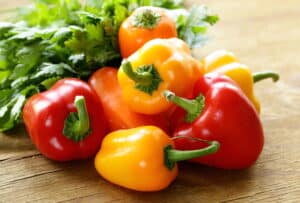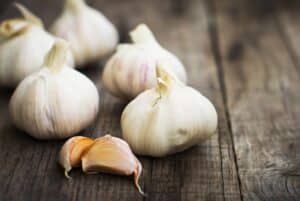Trying to use less energy when you cook is an admirable goal. Energy efficient cooking reduces emissions and it can help save money in the household budget. California’s Consumer Energy Center estimates that cooking casserole costs $0.03 in the microwave, versus an electric oven at $0.16. Rather than trying to cook everything in the microwave (good luck frying anything), there are also plenty of other ways to save energy while you cook.
Use the correct cooking items
The correct cooking tools can go a long way in energy efficient cooking. Make sure you’re using the right pan for how much food you’re cooking. Nothing will waste energy faster than using the giant pan to make one serving of pasta. That’s just space you don’t need to heat. Now’s the time to get better-sized pans if you tend to use one size for everything.
Also, a key component to saving energy while you cook is to have a decent, flat pan. It’s easy for pans to get warped, or the cheaper ones won’t even be flat to begin with. A warped pan allows energy to escape from the burner while you’re cooking. Also, look for pans with high-quality conductive materials. Pans with copper bottoms are good for the stovetop and glass or ceramic pans are good for the oven. Make sure your pans come with tight lids to trap heat while cooking.
Buy efficient
Buying ENERGY STAR appliances is a must for efficient kitchens. If you’re still using old and outdated appliances, now may be the time to update.
You’ll also want to look into types of appliances that can be more efficient. For instance, the U.S. Department of Energy estimates that a convection oven uses 20% less energy per month versus a standard oven.
Keeping things clean
Another key way to boost energy efficient cooking is to make sure your stovetop is clean. It’s so easy to let that slide, but when your burners are dirty, that’s less heat that’s making it to the pan to actually cook your food.
If you have gas burners, it especially important to keep the burner pans clean, which are those silver foil pans right below the heating elements or burners. Those can obstruct the efficiency of the gas burner if they’re gunked up.
Fix leaks
If your kitchen faucet is leaking, you’re looking at wasting up to 1,661 gallons of water each year if there’s one drip per second, according to the U.S. Department of Energy. The U.S. Department of Energy also recommends making sure refrigerators are not leaking out cold air by putting a piece of paper in the door of the refrigerator. If you can pull the paper out, you may need a new door latch or seal.
Cut corners to reduce energy use
See where you can get away with using your appliances less. For instance, try to defrost things in the refrigerator instead of the microwave. Also, try to cook larger portions in one go so you’re not using the oven more than you have to. Then you can use your trusty lower-energy microwave to reheat leftovers. Look also for one-pot meals to reduce the amount of burners you even need to turn on.






Comments
No Comments